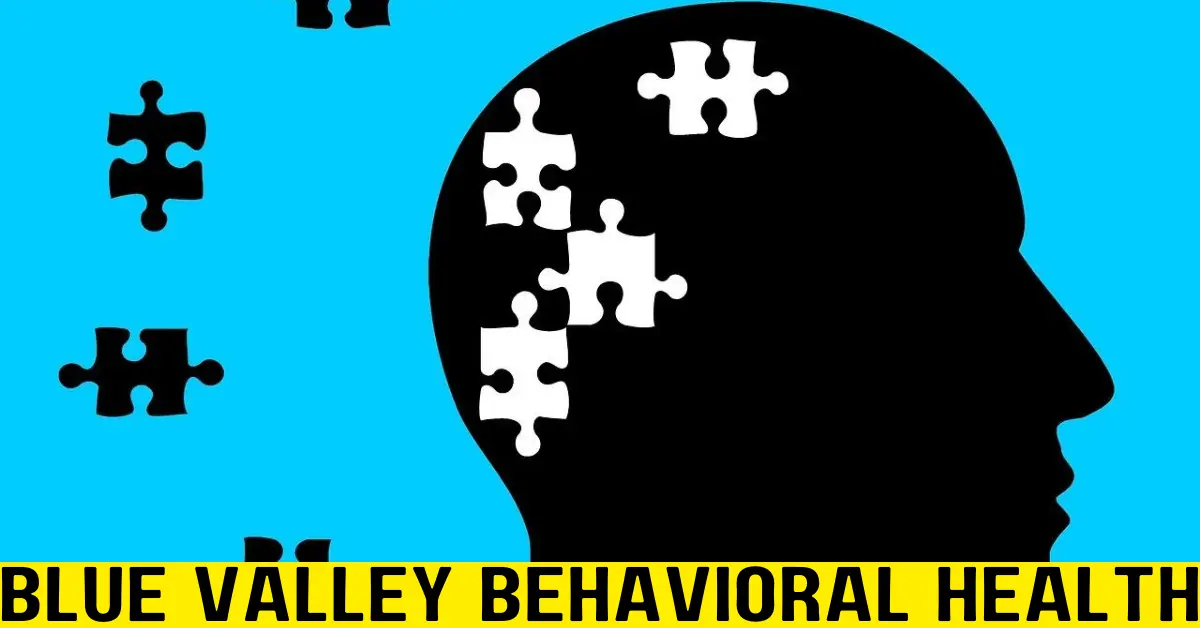“Public health educator jobs” play a vital role in promoting health and preventing disease in communities. They develop and deliver educational programs, materials, and interventions to individuals and groups about a wide range of health topics, such as:
- Nutrition and physical activity
- Chronic disease prevention and management
- Infectious diseases
- Environmental health
- Mental health
- Substance abuse
- Sexual health
Public health educators work in a variety of settings, including:
- Government agencies
- Non-profit organizations
- Hospitals and clinics
- Schools
- Community centers
- Private companies
Here are some specific examples of public health educator jobs:
- Health educator: Develops and delivers educational programs on a variety of health topics to community groups, schools, and workplaces.
- Community health worker: Provides outreach and education to underserved communities about health resources and services.
- Patient educator: Teaches patients about their chronic diseases and how to manage them.
- HIV/AIDS educator: Provides education and counseling to individuals and communities about HIV/AIDS prevention and treatment.
- Sexual health educator: Provides education about sexual health, including contraception, sexually transmitted infections, and healthy relationships.
If you are interested in a career as a public health educator, you will need to have a bachelor’s degree in public health, health education, or a related field. You may also need to complete a master’s degree or other specialized training.
Here are some of the skills and qualities that are important for public health educators:
- Strong communication and interpersonal skills
- Ability to develop and deliver educational programs
- Cultural competency
- Ability to work with diverse populations
- Problem-solving skills
- Ability to work independently and as part of a team
- Commitment to public health
The job outlook for public health educators is good. The Bureau of Labor Statistics projects that employment in this field will grow by 13% from 2020 to 2030, much faster than the average for all occupations.
If you are interested in learning more about public health educator jobs, here are some resources:
- The American Public Health Association
- The National Association of Health Educators
- The Centers for Disease Control and Prevention
I hope this information is helpful!
What is the highest paying job in public health?
Determining the absolute “highest paying” job in public health depends on various factors like individual experience, location, and specific employers. However, some roles consistently rank high in terms of average salary potential:
Top contenders:
- Public Health Administrators: Overseeing public health programs or organizations, these leaders can reach median annual salaries of $102,300 (according to Northeastern University), with top earners exceeding $140,000.
- Public Health Consultants: Offering expertise to various clients, consultants enjoy flexibility and potentially high earnings. Salary.com reports an average of $78,000 annually, with top earners exceeding $120,000.
- Biostatisticians: Skilled in analyzing health data, they’re crucial for research and program evaluation. Their median annual salary sits around $92,270 (Bureau of Labor Statistics), with top earners reaching over $135,000.
- Health and Safety Engineers: Focused on preventing workplace hazards, they can earn a median annual salary of $97,340 (BLS), with top earners exceeding $148,000.
- Medical and Health Services Managers: Leading healthcare organizations, they earn a median annual salary of $104,990 (BLS), with top earners exceeding $187,000.
Other high-paying options:
- Epidemiologists: Investigate disease patterns and outbreaks, with a median annual salary of $70,820 (BLS) and top earners exceeding $126,000.
- Public Health Program Managers: Design and manage public health initiatives, earning a median annual salary of $75,100 (Northeastern University).
- Occupational Health Specialists: Address workplace health concerns, with a median annual salary of $84,140 (BLS) and top earners exceeding $130,000.
Remember:
- These are just general ranges, and individual salaries can vary greatly.
- Consider factors like specialization, experience, and location when researching specific roles.
- Don’t solely focus on salary; find a job that aligns with your interests and values.
I hope this comprehensive overview helps you explore lucrative paths in public health!
What is the highest pay for a health educator?
While it’s challenging to pinpoint a single “highest pay” for health educators due to varying factors, here’s what we know:
General Range:
- The median annual salary for health educators in the US was $59,990 in 2022 (US News & World Report).
- The 25th percentile earned $45,490, while the 75th percentile earned $81,610.
Specializations:
- Community Health Educators: ZipRecruiter reports the top 25% earning up to $81,500 annually.
- Public Health Educators: Depending on experience and expertise, salaries can exceed $100,000.
- Specific areas like HIV/AIDS education or chronic disease management might offer higher potential due to specialized skills and demand.
Factors Affecting Pay:
- Experience: More years in the field typically lead to higher pay.
- Education: Advanced degrees (Master’s) can significantly increase earning potential.
- Location: Salaries can vary greatly depending on geographic area, with higher costs of living often leading to higher pay.
- Employer: Public vs. private, non-profit vs. for-profit organizations can offer different pay structures and benefits.
- Specialization: Certain areas with higher demand or requiring specific expertise might pay more.
Remember, salary shouldn’t be the sole factor when choosing a career. Consider your passion, interests, and desired work environment to find a fulfilling and rewarding path in health education.
How do I become a health educator in Canada?
Here’s a roadmap to becoming a health educator in Canada:
Education:
- Bachelor’s degree: This is the minimum requirement for most entry-level positions. Relevant majors include health promotion, health education, public health, nursing, education, nutrition, or social sciences.
- Master’s degree (optional): While not always mandatory, a Master’s in Health Education, Public Health, or a related field can enhance your resume and open doors to more specialized roles and higher salaries.
Certification:
- Certified Health Education Specialist (CHES): This voluntary credential from the Canadian Public Health Association demonstrates your knowledge and commitment to the field.
Experience:
- Volunteer or internship: Gain practical experience working in community health settings, hospitals, schools, or non-profit organizations.
- Entry-level positions: Look for roles like health promoter, community health worker, patient educator, or program assistant.
Additional Requirements:
- Strong communication and interpersonal skills: You’ll interact with diverse populations and deliver health information effectively.
- Cultural competency: Respect and understanding of different cultures are crucial for working with various communities.
- Problem-solving and critical thinking skills: You’ll analyze health issues, design programs, and adapt to changing needs.
- Ability to work independently and as part of a team: You’ll often collaborate with healthcare professionals and community members.
Additional Tips:
- Network with professionals in the field.
- Keep up-to-date with current health trends and research.
- Develop your research and evaluation skills.
- Showcase your passion for health education in your resume and interview.
Remember, the specific requirements and career path may vary depending on your chosen specialization and location. With dedication and effort, you can find a rewarding and impactful career as a health educator in Canada!
Which specialization is best in public health?
There’s no single “best” specialization in public health, as it largely depends on your individual interests, skills, and career goals. Each specialization offers unique opportunities and challenges, and what excites one person might not resonate with another.
Here’s how to approach identifying the “best” specialization for you:
1. Assess your interests and values:
- What health issues are you passionate about? (Maternal health, infectious diseases, environmental health, etc.)
- Do you prefer working directly with individuals or communities?
- Are you drawn to research, policy, or program implementation?
- Do you value innovation, leadership, or data analysis?
2. Consider your skills and strengths:
- Are you strong in communication, interpersonal skills, or cultural competency?
- Do you excel in data analysis, research, or critical thinking?
- Are you comfortable working independently or as part of a team?
3. Explore different specializations:
- Research various specializations like epidemiology, biostatistics, health education, environmental health, global health, etc.
- Read job descriptions, talk to professionals in the field, and attend relevant events or conferences.
- Consider the projected job growth, salary potential, and work environment for each specialization.
4. Align your interests with opportunities:
- Look for specializations that match your interests, skills, and career goals.
- Consider your preferred work setting (government, non-profit, private sector) and location.
- Explore educational programs and training requirements for each specialization.
Remember:
- There’s no “one-size-fits-all” answer. The best specialization is the one that excites you and aligns with your unique aspirations.
- Be open to exploring different paths and don’t be afraid to change your mind if your interests evolve.
- Focus on finding a specialization that allows you to contribute meaningfully to improving public health and making a positive impact
I hope this helps you navigate the exciting world of public health specializations!
What is the lowest paid health profession?
It’s difficult to pinpoint the absolute “lowest paid” health profession because salaries can vary depending on factors like location, experience, and specific employer. However, some roles consistently face lower average salaries:
Generally lower-paid health professions:
- Nursing Aides/Orderlies: Assisting patients with daily living activities, they earn a median annual salary of $29,340 in the US (Bureau of Labor Statistics, BLS).
- Dietary Aides: Preparing and serving meals to patients, their median annual salary sits around $26,770 (BLS).
- Home Health Aides: Providing personal care and companionship to patients in their homes, their median annual salary is $27,010 (BLS).
- Medical Assistants: Performing administrative and clinical tasks in clinics and doctor’s offices, their median annual salary reaches $40,740 (BLS), but can be lower depending on experience and setting.
- Pharmacy Technicians: Assisting pharmacists with dispensing medications, their median annual salary is $40,500 (BLS).
Important points to remember:
- These are just median salaries, and individual earnings can vary significantly.
- Location plays a role, with higher costs of living often leading to higher pay.
- Experience and specialized skills can increase earning potential within these professions.
- It’s crucial to consider not just salary but also job satisfaction, growth opportunities, and work-life balance.
Remember, choosing a career path should involve more than just salary. Explore the different options, considering your interests, skills, and desired work environment to find a fulfilling and rewarding profession in the healthcare field.
What is the easiest job in healthcare?
It’s important to remember that “easiest” is subjective and depends on individual skills, interests, and comfort levels. What one person finds easy, another might find challenging. Additionally, every healthcare role plays a vital part in patient care, and labeling any role as “easy” can be disrespectful to the dedication and hard work required.
Instead of focusing on the “easiest” job, let’s explore entry-level positions in healthcare that require lower educational qualifications and might be suitable for someone starting their healthcare journey:
1. Patient Service Representative:
- Greet patients, schedule appointments, handle paperwork, and answer basic questions.
- Requires strong communication and interpersonal skills.
- Typically requires high school diploma/GED.
2. Medical Assistant:
- Assist healthcare professionals with administrative tasks, prepare patients for exams, and take vital signs.
- Requires technical skills and ability to follow instructions precisely.
- Usually requires on-the-job training or a short certificate program.
3. Home Health Aide:
- Assist elderly or disabled individuals with daily living activities like bathing, dressing, and meal preparation.
- Requires patience, compassion, and physical stamina.
- Often requires high school diploma/GED and on-the-job training.
4. Pharmacy Technician:
- Assist pharmacists with dispensing medications, maintaining inventory, and processing insurance claims.
- Requires attention to detail and accuracy.
- Usually requires a certificate program or on-the-job training.
5. Nursing Assistant:
- Provide basic care to patients in hospitals, nursing homes, or assisted living facilities.
- Assist with bathing, dressing, feeding, and toileting.
- Requires compassion, physical stamina, and ability to work with diverse populations.
- Often requires a certificate program or on-the-job training.
Remember:
- Each role has its own responsibilities and challenges.
- It’s essential to research thoroughly and understand the specific duties before pursuing any position.
- Consider your individual skills, interests, and what brings you satisfaction when choosing a career path.
I hope this information helps you explore potential healthcare careers without the misleading label of “easiest.”








